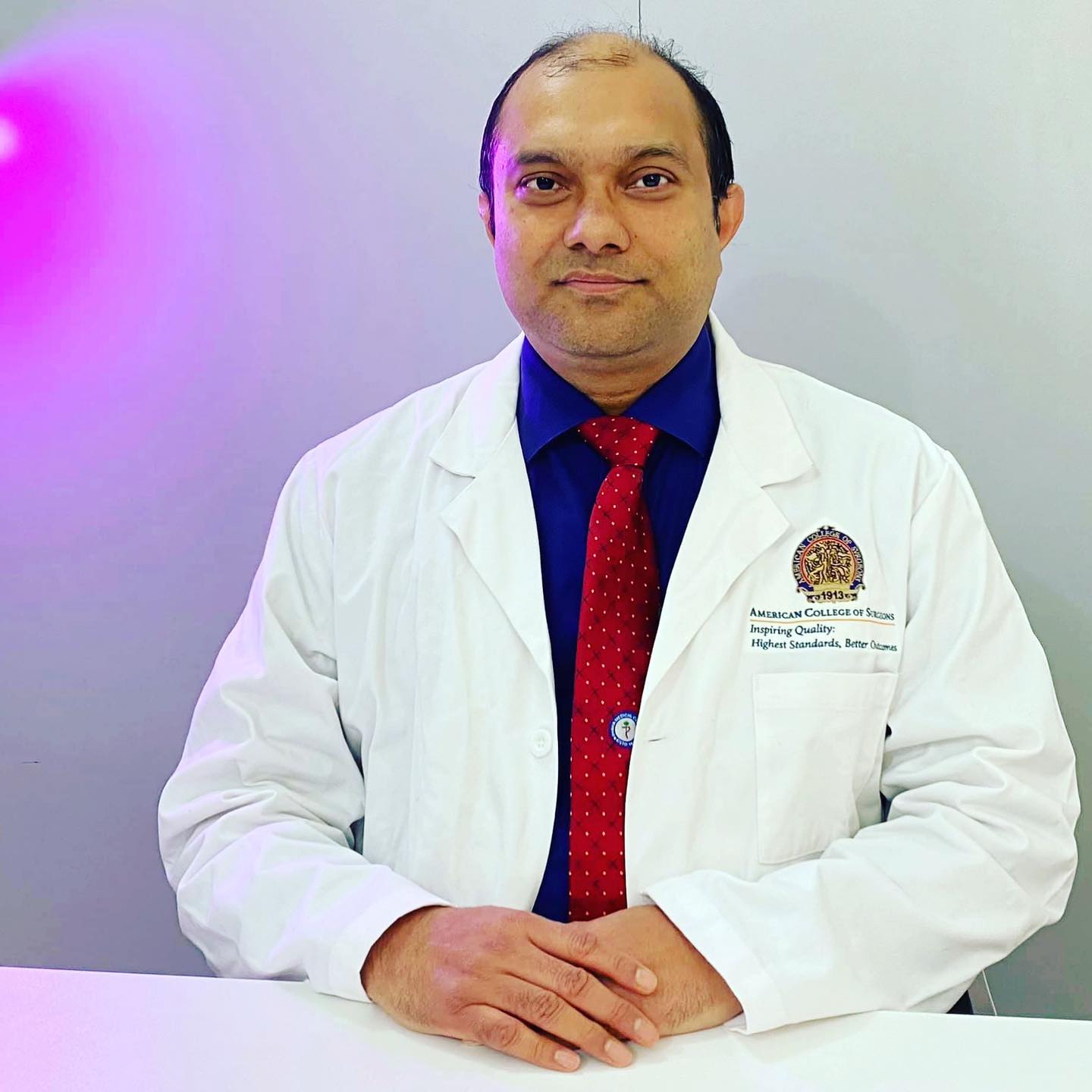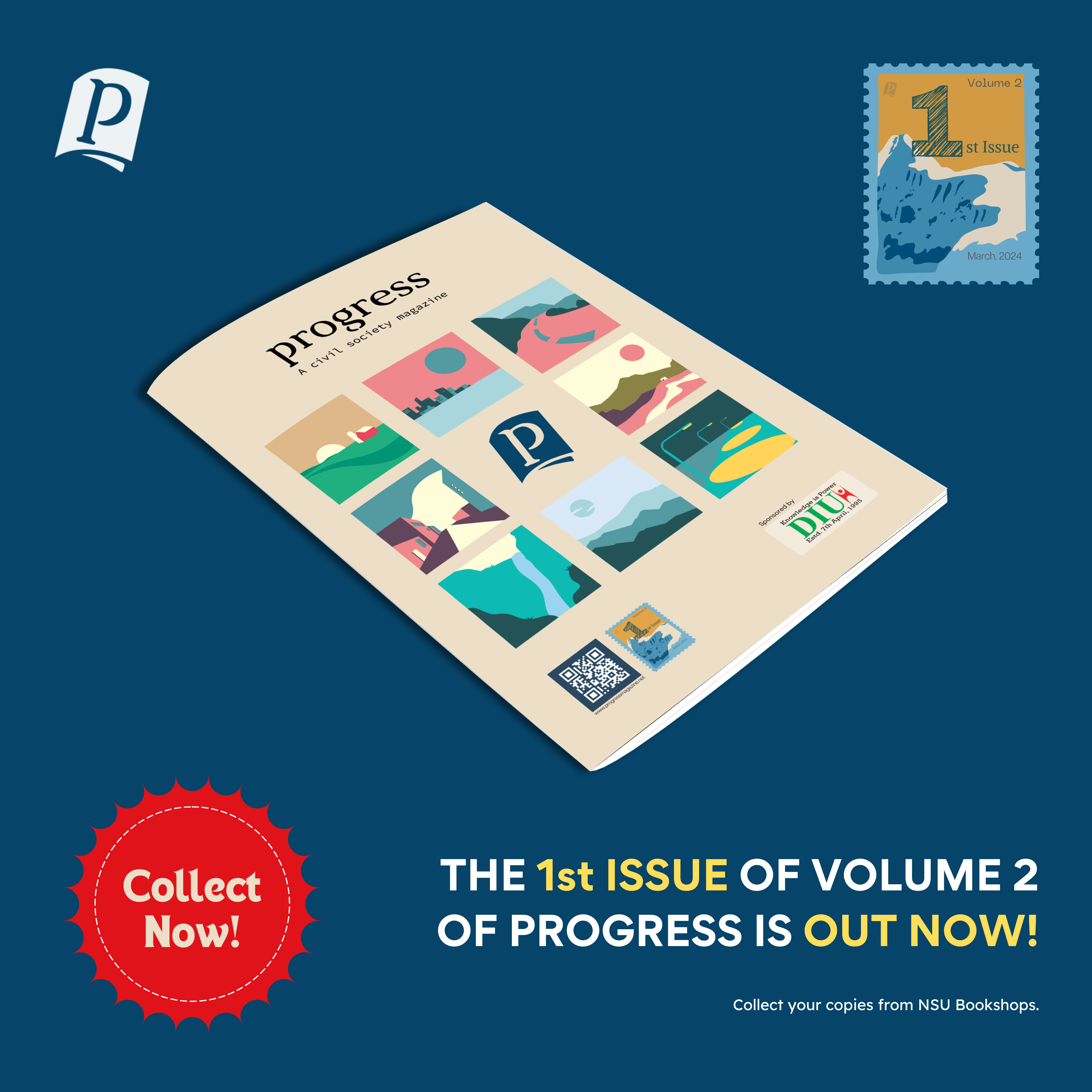Progress:
Doctor, thank you very much for agreeing to be interviewed by Progress Magazine.
As per Section 5 (a) of the Code of Medical Ethics, “gross negligence” of medical professionals may be regarded as misconduct sufficient to justify suspension or removal from the Register. However, the interpretation of “gross negligence” is not precisely mentioned anywhere. How do you suggest “gross negligence” be defined? Also, it is stated in Section 23 (a) of the Bangladesh Medical and Dental Council Act, 2010, that professional misconduct or violation of the Act by any physician would result in cancellation of their registration. Please share your thoughts.
Dr. Masum:
Thank you for the opportunity. Let me cover both the matters together in question and convey an opinion.
While treating patients, I firmly believe all doctors intend to do their best. Sometimes, they inevitably are unable to succeed. Doctors can only try their best and be ethical, as non-racial and non-discriminatory professionals. Unless a doctor’s license is intentionally misused – he maliciously intends to cause harm to a patient instead of providing treatment, a doctor should not lose his registration or practising license.
On the other hand, determining gross negligence is a challenging task. Even upon following the required medical protocols, a patient may not survive. It must also be remembered that every patient is different and might have underlying medical conditions that may not even appear at standard medical tests. Hence, if a patient or his family indeed makes a complaint on the grounds of negligence, it should be made to bodies such as the Bangladesh Medical and Dental Council. Such a complaint demands a proper investigation by the council, a specialised team of doctors from the concerned hospital, and an independent investigative team with outside specialists of the concerned discipline. Only then, they may come to a conclusion and propose a sanction. Determining gross negligence should not be the job of persons outside the medical profession.
Progress:
We know that you and your physician colleagues have observed a two-day strike this year in July, in protest of the arrest of two doctors. Why do you think it is wrong to make such arrests?
Dr. Masum:
The Almighty is the ultimate decision-maker, and we doctors can only give our utmost efforts to save lives. To answer this question, let me state the facts in brief for your readers to get the complete picture of the situation – A patient in the recent past was advised to pursue an immediate C-section in Cumilla. Her family opted for a normal delivery and decided to transport her to Dhaka. The time loss due to the journey was detrimental to her health. Upon her arrival, doctors in Dhaka, including a specialised physician off-duty, arrived at the scene at the earliest possible time to operate on her. The doctors did their best to save the woman and her unborn child but failed to. Subsequently, her family filed a complaint to the police and guaranteed the arrest of the doctors.
Now, other than such a critical condition of a patient and the kind of time loss mentioned above, there might be many other factors in determining why a patient may not survive. Even if I prescribe a medicine which works for 99 per cent of the patients, the medication might have side effects that subtly harm only 1 per cent. But if a patient who incidentally falls within the 1 per cent dies due to a rare condition, age or any other factors, would it be wise to blame me? What possible reason might I have had to take a life and be a sinner intentionally?
We, doctors, very well acknowledge the emotions behind the patients and their family members. However, it does not make sense for law enforcement to arrest a doctor immediately upon their complaints. This way, a doctor is defamed, and due to fear, doctors in the future would refrain from treating critical emergency patients. As stated in my first answer, proper investigation only by medical or related professional bodies or personnel should determine whether a doctor should be criminally liable enough to be arrested. Media trial is not the way to go about it! Hence, we had no choice but to go on strike.
Also, although I have minimal knowledge of the law, a consent form must mean something. Does it not mean that a patient or the family members acknowledge potential dangers and would accept an undesired occurrence despite the medical team’s best efforts?
Progress:
Data protection is a worldwide concern in this day and age. How well do doctors in Bangladesh maintain a patient’s privacy? As a colorectal surgeon, I am sure this aspect is of grave concern to you.
Dr. Masum:
Yes, doctors are required to maintain the confidentiality of their patients strictly, and I am confident that this part of professionalism is held by most, if not all.
However, confidentiality does not apply when patients consensually provide testimonials of medical professionals or a treatment method in order to help create awareness or perhaps aid any discipline of medicine.
You should also note that there are times when doctors must bend the rule of privacy. These are instances when a patient can cause harm to others. For example, if a patient is COVID-19 positive and is observed to be roaming around without protective measures. Considering the lives of others, the patient’s demand, if any, to maintain his confidentiality in this case would be immaterial.
Progress:
What immediate suggestions do you have, in order to improve our overall health care system?
Dr. Masum:
In order to get close to developed countries’ standards, firstly, a significant increase has to be made in the national budget. Prioritising health care over many other aspects is necessary in Bangladesh. Developments in medical facilities include building better infrastructure, purchasing modern medical equipment and increasing logistic support.
Secondly, a referral system has to be introduced, just like in the US and the UK. This means that a general physician would be available in the first instance, and he would refer the patient to a specialist doctor only if he deems it necessary. This particular method, combined with a structure as to the maximum number of patients a doctor can treat, would also ensure an equal distribution of patients among the doctors.
Thirdly, introducing health insurance for the citizens is of utmost importance. This way, the insurance premiums would contribute towards the developments mentioned above and guarantee the citizens treatment if they fall ill, without worrying about hefty hospital bills.
Last but not least, the government doctors must be better cared for. The most brilliant of the boys and girls become physicians. However, after joining, their benefit scales commonly tend to stop in the 3rd grade, whereas for the administrative, police or other cadres of the government, going up to the 1st grade is standard with time and promotion. Hence, these doctors at a certain point in their careers lack incentives to perform better. Also, it is unnecessary on the government’s end to publish notifications from time to time regarding doctors’ restrictions on going abroad. If doctors cannot go beyond borders, even with personal finances in order to train themselves further, their services are only likely to fall short of international standards. Discouraging doctors to upgrade their skills would only lead to the best future doctors settling abroad – a classic example of brain drain.
Progress:
It is commonly heard in Bangladesh that doctors are so hurried that they rarely explain the diagnosis to the patients. What is your opinion on that?
Dr. Masum:
A doctor is only successful upon his patients’ satisfaction. A proper diagnosis can only be made on a doctor’s part upon listening and knowing a patient’s medical history, performing clinical examination and, if necessary, investigation. I request that patients only visit doctors who give their patients enough time.
As discussed earlier, a referral system would have avoided such complaints altogether. The reality at this point is that patients who possess the financial affordability, tend to visit specialists for the smallest of issues. Also, it is not uncommon for legislators, highly positioned government officials, and even the police to refer patients to us as ‘VIPs’. A doctor is just a human being, and it can become impossible to deal with the pressure of too many patients daily while giving them sufficient time.
Progress:
Any message you would like to convey as a distinguished surgeon towards the readers of Progress Magazine or the citizens of Bangladesh?
Dr. Masum:
I want readers to know that we doctors are also, more often than not, patients. With due consideration of medical ethics and the intention of good practice, we keep working sincerely to ensure that patients can recover fast, get to the best of their capacities, and live longer. We try our hardest so that they enjoy an even better quality of life amidst their ailments. Readers must understand that the impact of a failed surgery or mistreatment would put a doctor’s career and image in jeopardy. There is no way a doctor gains from the suffering of a patient.
The Constitution talks about the Right to Life. Hence, the government must take necessary measures to improve health care in Bangladesh, since otherwise, we doctors and our families would suffer alongside the whole population. Meanwhile, unfortunately, the medical industry of the neighbouring countries would keep thriving from our hard-earned money.











